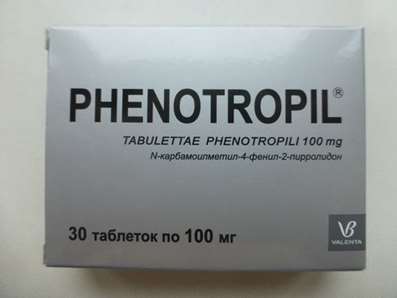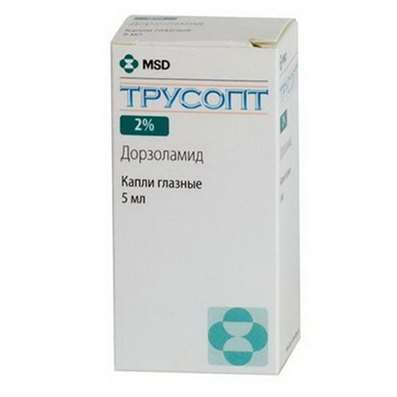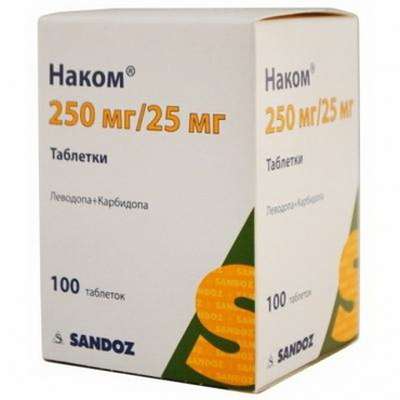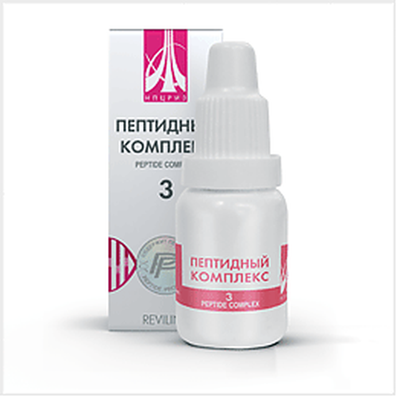Instruction for use: Hepon
I want this, give me price
Dosage form: Powder lyophilized for the preparation of solution for oral and external use; Solution for oral and external use
Active substance: Threonyl-glutamyl-lysyl-lysyl-arginyl-arginyl-glutamyl-threonyl-valyl-glutamyl-arginyl-glutamyl-lysyl-glutamate
ATX
L03AX Other immunostimulants
Pharmacological groups
Means for the treatment of HIV infection
Other immunomodulators
Antiviral drugs (excluding HIV)
The nosological classification (ICD-10)
B20-B24 Disease caused by human immunodeficiency virus [HIV]: Deployed stage of HIV infection; AIDS in children; HIV / AIDS infection; Infections with HIV; AIDS; Human Immunodeficiency Virus HIV-1; HIV-1 infection HIV infection; HIV
B37 Candidiasis: Visceral candidiasis; Invasive Candidiasis; Candidiasis of the larynx; Candidiasis of the digestive tract; Candidiasis of the skin and mucous membranes; Candidiasis of mucous membranes and skin; Candidiasis of the mucous membranes; Candidiasis due to Candida albicans; Candidomycosis; Acute pseudomembranous candidiasis; Chronic forms of candidiasis
B37.2 Skin and Nail Candidiasis: Fungal paronychia; Fungal Eczema; Fungal dermatosis; Fungal diseases of smooth skin; Fungal lesions of smooth skin; Fungal lesions of smooth body skin; Fungal nail infections; Yeast Infection of the Skin; Candidiasis of the skin; Candidiasis of skin and mucous membranes of mouth and mouth; Candidiasis of the skin of nail rollers; Candidiasis of nail rollers; Candidiasis of nails; Candidiasis with lesions of the skin and mucous membranes; Candidiasis of mucous membranes and skin; Candida paronychia; Candidomycosis of the skin; Cutaneous candidal infections; Cutaneous candidiasis; Interdigital fungal erosion; Mycotic dermatitis; Paronychia candida; Superficial form of skin candidiasis; Superficial candidiasis; Superficial candidiasis of nails; Superficial mycosis of the skin; Chronic candidiasis of the skin
D84.9 Unspecified Immunodeficiency: Pneumonia in immunodeficient states; Autoimmune disease; Autoimmune diseases; Severe immunodeficiency; immune deficiency; Immunodeficiency; immunodeficiency diseases; Immunodeficiency states due to surgery; Immunotherapy for cancer; Immunomodulation; Infections in patients with weakened immune systems; Correction of immune deficiency; Correction of immunodeficiencies; Correction of a weakened immune system; Correction of a weakened immunity in immunodeficient states; Violation of immunity; Violation of the immune status; Immune System Disorders; Primary immunodeficiency; Maintaining immunity; Lowering the body's defenses; Lowering the immunity; Lowering the immunity of colds and infectious diseases; The decrease of the immune status; Lowered resistance to infections; Lowered resistance to infections and colds; Lowered resistance; Immunosuppression; Predisposition to colds; acquired immune deficiencies; Radiation immunodeficiency; The development of immunodeficiency; Immune dysfunction syndrome; immunodeficiency syndrome; primary immunodeficiency syndrome; Reducing the body's defenses; Immunosuppression; Reduced immune defense; Reducing local immunity; Reducing the total body resistance; The decrease in cell-mediated immunity; Reduced resistance to infections in children; Reducing the body's resistance; Reduced resistance; reduced immunity; Status immunodeficiency; Stimulation of the processes of nonspecific immunity; Heavy selective secondary immunodeficiency; immunity Oppression; Primary immunodeficiency
N34 Urethritis and urethral syndrome: Urethral buzhirovanie; Gonococcal urethritis; Urethrocystitis; Gonorrheic urethritis; Urethritis; Non-gonococcal urethritis; Negative urethritis; Lesion of the urethra; Acute gonococcal urethritis; Acute gonorrhea urethritis; Acute urethritis; Infection of the urethra; Bacterial nonspecific urethritis; Bacterial urethritis
N39.0 Urinary tract infection without established localization: Fungal infections of the urinary tract; Asymptomatic bacteriuria; Bacterial infections of the urinary tract; Bacterial infections of the urinary tract; Bacterial infections of the genitourinary system; Bacteriuria; Bacteriuria asymptomatic; Bacteriuria chronic latent; Asymptomatic bacteriuria; Asymptomatic massive bacteriuria; Inflammatory urinary tract disease; Inflammatory urinary tract disease; Inflammatory diseases of the bladder and urinary tract; Inflammatory diseases of the urinary system; Inflammatory diseases of the urinary tract; Inflammatory diseases of the urogenital system; Fungal diseases of the urogenital tract; Urinary Tract Infections; Urinary Tract Infections; Infections of the urinary system; Urinary tract infections; Urinary Tract Infections; Urinary tract infections caused by enterococci or mixed flora; Urinary tract infections uncomplicated; Urinary tract infections complicated; Infections of the urogenital system; Infections urogenital; Infectious diseases of the urinary tract; Urinary Tract Infection; Urinary tract infection; Urinary system infection; Urinary tract infection; Urinary tract infection; Infection of the urogenital tract; Uncomplicated urinary tract infections; Uncomplicated urinary tract infections; Uncomplicated urinary tract infections; Uncomplicated infections of the genitourinary system; Exacerbation of chronic urinary tract infection; Retrograde kidney infection; Recurrent urinary tract infections; Recurrent urinary tract infections; Recurrent infectious diseases of the urinary tract; Mixed urethral infections; Urogenital infection; Urogenital Infectious-Inflammatory Disease; Urogenital mycoplasmosis; Urologic disease of infectious etiology; Chronic urinary tract infection; Chronic inflammatory diseases of the pelvic organs; Chronic urinary tract infections; Chronic infectious diseases of the urinary system
N48.1 Balanoposthitis: Non-specific balanoposthitis
Composition and release form
Powder lyophilized for solution for oral administration and external use 1 fl.
Synthetic peptide consisting of 14 amino acid residues: Thr-Glu-Lys-Lys-Arg-Arg-Glu-Thr-Val-Glu-Arg-Glu-Lys-Glu with a molecular weight of 1818 daltons 1 mg; 2 mg; 10 mg
In the vial; In a pack of cardboard 1, 3 or 30 bottles or in a vial with a solvent in an ampoule and a syringe; In a pack of cardboard 1 bottle; Or in a vial with a solvent (water for injection) in an ampoule; In a pack of cardboard 1 bottle.
Description of dosage form
Sterile lyophilized amorphous powder of white color, easily soluble in water, physiological solution.
Characteristic
Synthetic oligopeptide consisting of 14 amino acid residues.
Pharmachologic effect
Mode of action - antiviral, immunomodulating.
The mechanism of action: induces the production of alpha and beta interferons, mobilizes and activates macrophages, limits the production of pro-inflammatory cytokines (interleukins 1, 6, 8 and tumor necrosis factor), stimulates the production of antibodies to various antigens of an infectious nature, inhibits the replication of hepatitis C viruses, Herpes simplex type 1 and type 2, encephalomyocarditis, HIV, increases resistance to infections caused by viruses, bacteria and fungi.
In patients infected with HIV, reduces the concentration of HIV in blood cells and in plasma, simultaneously activates immune responses specific for HIV. In the majority of patients infected with HIV, the treatment leads to the following positive changes: the content of CD4 + T- and NK-cells increases; Increases the functional activity of neutrophils and CD8 + T cells, which are key elements of protection against bacteria, viruses and fungi; The production of antibodies specific to HIV antigens, as well as antigens of pathogens of opportunistic infections relevant to this patient, is intensified.
Pharmacokinetics
Not studied, due to the peptide nature of the drug.
Clinical Pharmacology
Applied in the treatment of various diseases, when there is a need to strengthen (restore) the immune response, accelerate recovery, improve the effectiveness of treatment of acute or chronic infection, prevent recurrence of chronic infection, achieve healing of non-healing ulcers or wounds.
The clinical effect of the course of treatment is to prevent the recurrence of opportunistic infections within 3-6 months.
A short course of topical application (three irrigation) allows you to treat recurrent infections of mucous and skin caused by Candida fungi.
Within 1-2 days, when Gepon is applied, signs of inflammation, in particular, redness and swelling, and a feeling of soreness, burning, itching in the area of inflamed mucous membranes and skin, are significantly reduced. The use of the drug eliminates the dryness of the mucous membranes.
Gepon has been shown to be effective in frequently relapsing respiratory infections; Chronic polyposis rhinosinusitis; Chronic pharyngitis; Acute respiratory infections with signs of stenosing laryngotraheobronchitis; Intestinal dysbiosis; Acute intestinal infections; Peptic ulcer of the stomach and duodenum, other ulcerous and erosive processes on the mucous membranes; Acute and chronic viral hepatitis; Herpetic, chlamydial, mycoplasmal and other infections; Dermatitis of various genesis; Trophic ulcers in varicose veins, diabetes, or as a result of radiation damage.
Indications of the Hepon
Correction of weakened immunity in immunodeficient states; Treatment of HIV infection; Increase of immune defense against infections, treatment and prevention of opportunistic infections caused by bacteria, viruses or fungi; Treatment of infections of mucous and skin caused by Candida fungi, prevention of candidiasis of mucous membranes and skin with antibiotic therapy; Reducing inflammatory changes (redness, itching, swelling, burning, pain) mucous and skin, as well as dryness of mucous membranes.
Contraindications
Hypersensitivity to the drug; Children under 12 years.
Application in pregnancy and breastfeeding
There is no data on the effects of the drug on pregnant women. As with other drugs, should not be used during pregnancy, unless the benefits obtained by the patient do not exceed the possible risk to the fetus. Not recommended for nursing mothers.
Side effects
Not detected.
Interaction
Not described.
Dosing and Administration
Inside, locally.
Adults and children over 12 years are recommended 10 mg orally once a day, or 1-2 mg in the form of 0.02-0.04% solution - for local treatment of mucous membranes and skin - 1 time per day.
Treatment of opportunistic infections in HIV infection or other immunodeficiencies: treatment with daily intake of 10 mg orally for 1-3 months.
Treatment and prophylaxis of candidiasis of mucous membranes and skin: topical application by irrigation of affected areas of mucous and skin, course - 3 irrigation with an interval of 1-3 days. With vulvovaginitis, cervicitis, urethritis in women, irrigation is applied with a 0,02-0,04% solution of the vulvar mucosa, vagina, cervix, and also a lotion of affected skin areas adjacent to the entrance to the vagina. When urethritis and balanoposthitis in men apply instillation 0.02-0.04% solution in the urethra and lotion on the affected skin. Treatment of mucous membranes and skin is repeated at intervals of 1 -3 days.
For the prevention of candidiasis of mucous membranes and skin as a possible complication of antibiotic therapy, it is recommended that irrigation (lotions) be made with 0,02-0,04% solution during the course of treatment with an antibiotic.
To reduce the intensity of inflammation, the mucous membranes should be irrigated with 0.02-0.04% solution, and gauze wipes moistened with the same solution should be applied to the inflamed areas of the skin.
Manufacturer
OOO ĞIMMAPHARMAğ.
Storage conditions of the drug Hepon
In a dry, the dark place at a temperature of no higher than 8 ° C.
Keep out of the reach of children.
The shelf life of the drug Hepon
2 years.
Do not use beyond the expiration date printed on the package.

 Cart
Cart





